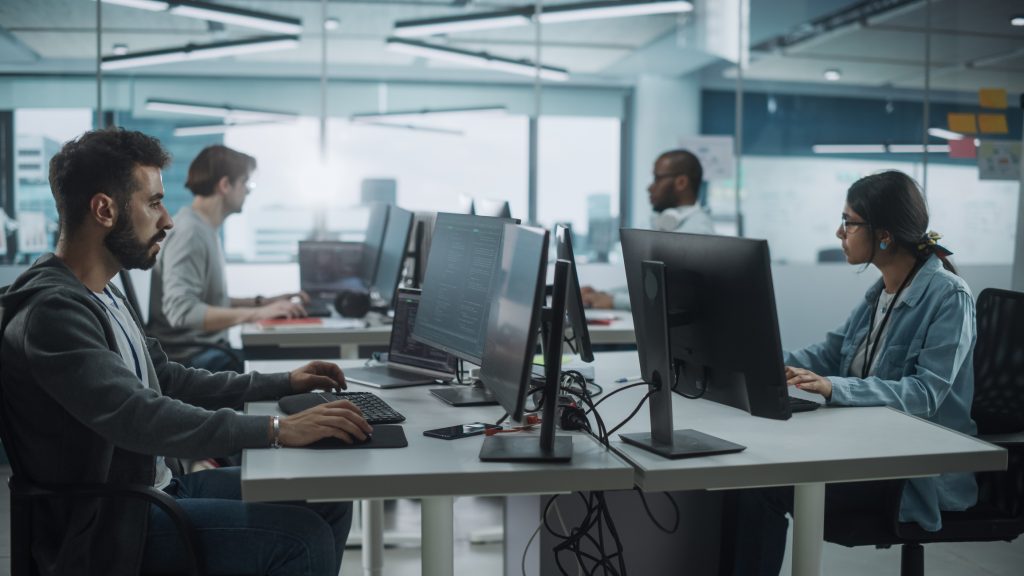This piece originally appeared in DC Journal and is republished with permission.
Generative artificial intelligence has three basic (and seemingly insatiable) needs: energy, chips and training content.
We are all familiar with how AI has redefined discussions about energy infrastructure and driven exponential growth among chip manufacturers. Often overlooked, however, is the gargantuan volume of content — cultural and scientific works created by artists, entrepreneurs, and small- and medium-size businesses — required to train generative AI.
No one questions that AI developers should pay for electricity and computer hardware. Should it be any different for the content they use to build their systems?
Nearly 40 cases in federal court hinge on this question. Big Tech’s legal and public arguments against paying for content boils down to some version of, “What’s done is done, and you can’t prove it,” “We’re special and shouldn’t have to pay,” or “China steals, so why shouldn’t we?”
While litigation proceeds about whether to condone wholesale theft, policymakers should know a market-based solution already exists that can both fuel AI’s appetite for content and compensate copyright creators: opt-in licensing. Sometimes called collective or blanket licensing, rightsholders band together and offer up bulk access to their works for buyers at a commercial scale.
These voluntary arrangements sustain the global creative economy. Licensing drives everything from TV streaming services to the e-reader lending programs offered by public libraries. Opt-in licenses benefit everyone: they create negotiated solutions that rightsholders and users can fit to their specific needs and price points.
As groundbreaking as generative AI technology is, copyright licensing has kept pace with every technological revolution, from the photocopier to the cable box to the internet. And while Big Tech has argued in court that it doesn’t need to pay for copyright content, it has never argued that it doesn’t need it. High-quality, accurate and trustworthy generative AI depends on high-quality, accurate and trustworthy training material. What would you trust more, a language model trained on the copyright work of professional authors and scientific journals or one trained on social media posts?
Future medical breakthroughs, transportation solutions and agricultural innovation will rely on quality AI. Inventors and artists will harness AI to forge new fronts for productivity and expression. AI will also need the continued ingenuity and expertise of artists, scientists, journalists, photographers and others as it needs electricity and semiconductors.
What good are AI-generated summaries of today’s news if there are no journalists to report it?
Big Tech’s argument that America must choose between advancing AI or respecting property rights is flagrantly self-serving and a false choice. Copyright and AI are complementary, and America should seek to excel at both. In 2021, the core copyright industries generated $2.09 trillion in economic activity, nearly 8 percent of U.S. GDP. Exports of copyright works exceeded $230 billion, meaning America’s content creators brought back more to the U.S. economy than the agricultural, aerospace and pharmaceutical industries. Although smaller, the U.S. AI market accounts for $146 billion and may reach $850 billion by 2034.
Other nations, particularly China, have launched active campaigns to dethrone the United States as the world’s leading producer of intellectual property and AI technology. To ensure the continued success of both industries, free-market solutions that permit both to flourish should be safeguarded. Respecting intellectual property creates the very ecosystem that produces the high-quality content essential for training effective AI systems.
The alternative is a race to the bottom, fighting countries that have stolen U.S. content and technology by sanctioning U.S. technology firms to do the same.
Big Tech argues that AI’s success is a national security imperative. I agree. However, while America’s future depends on technological innovation, piracy won’t bring that success. Stealing American creativity only weakens AI by starving it of quality inputs in the long term. It might be convenient to argue for a free handout now, but that is unsustainable, short-sighted, and ignores how digital innovation progresses.
Opt-in copyright licensing solutions for AI companies exist in the market. They will grow only if policymakers press Big Tech to respect copyright and support a system that offers AI developers access to copyright content on free-market terms. Licenses ensure people get paid for their work and promote responsibly built, trusted and reliable AI results.

